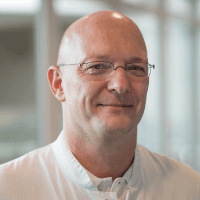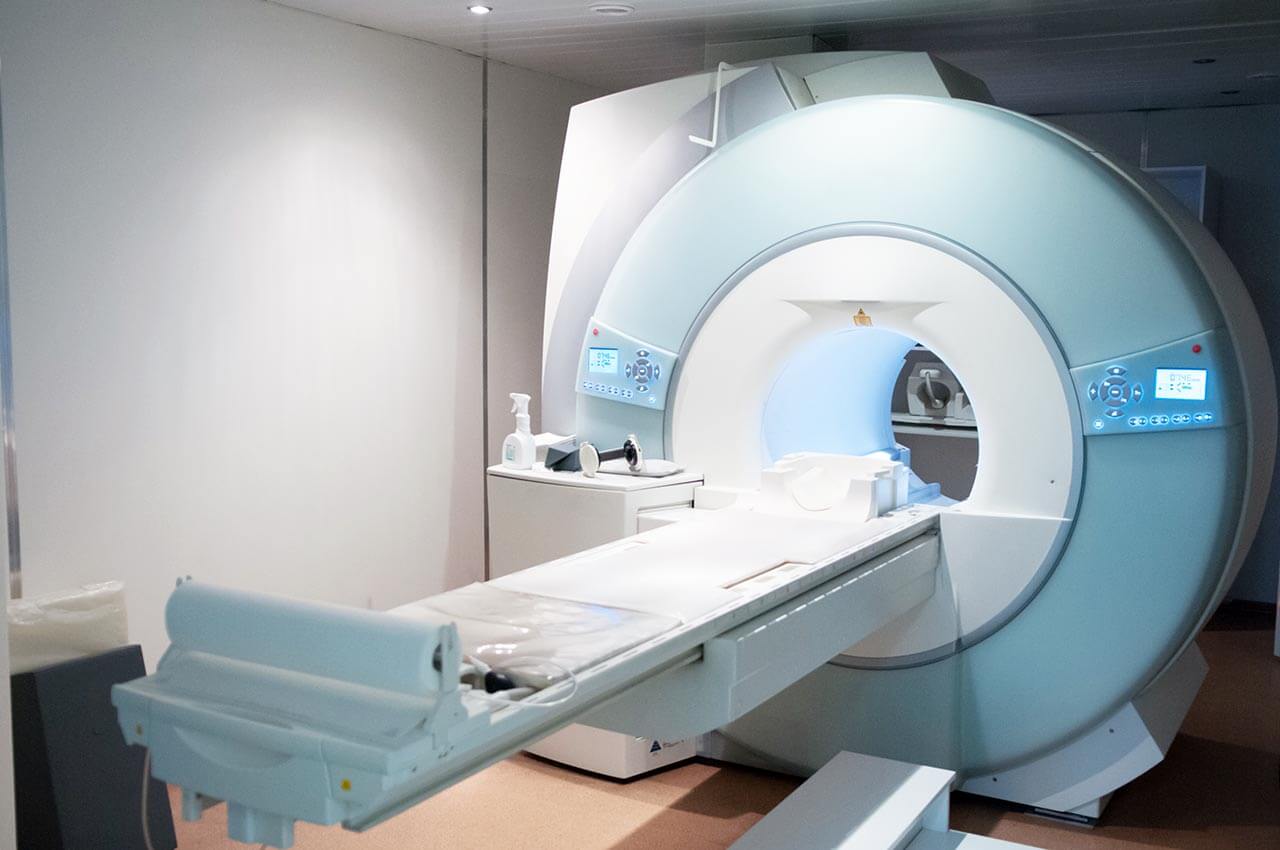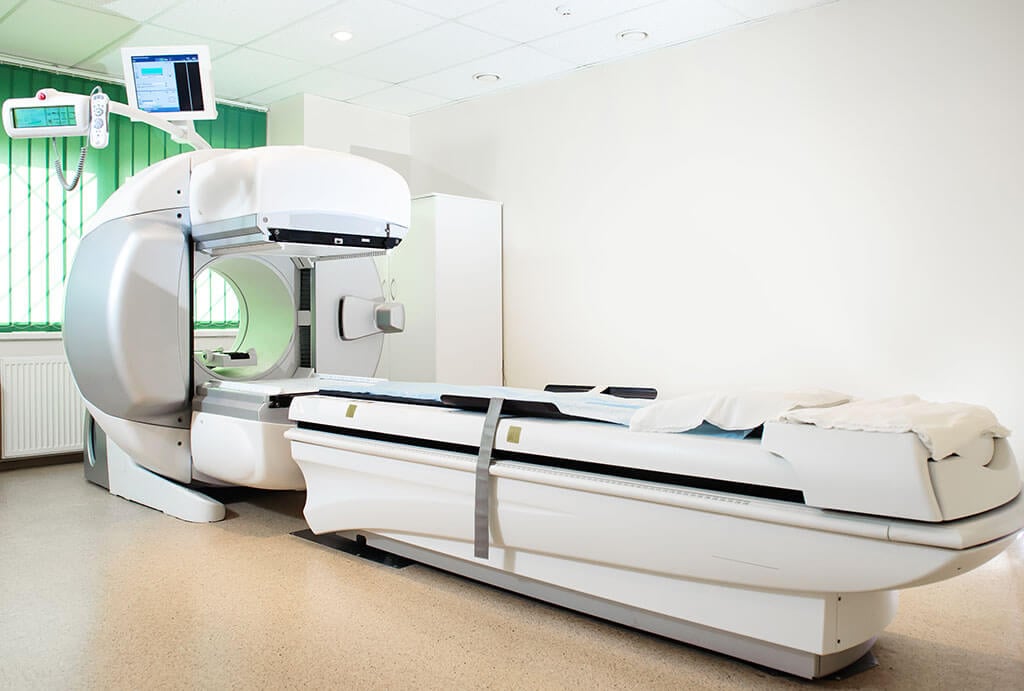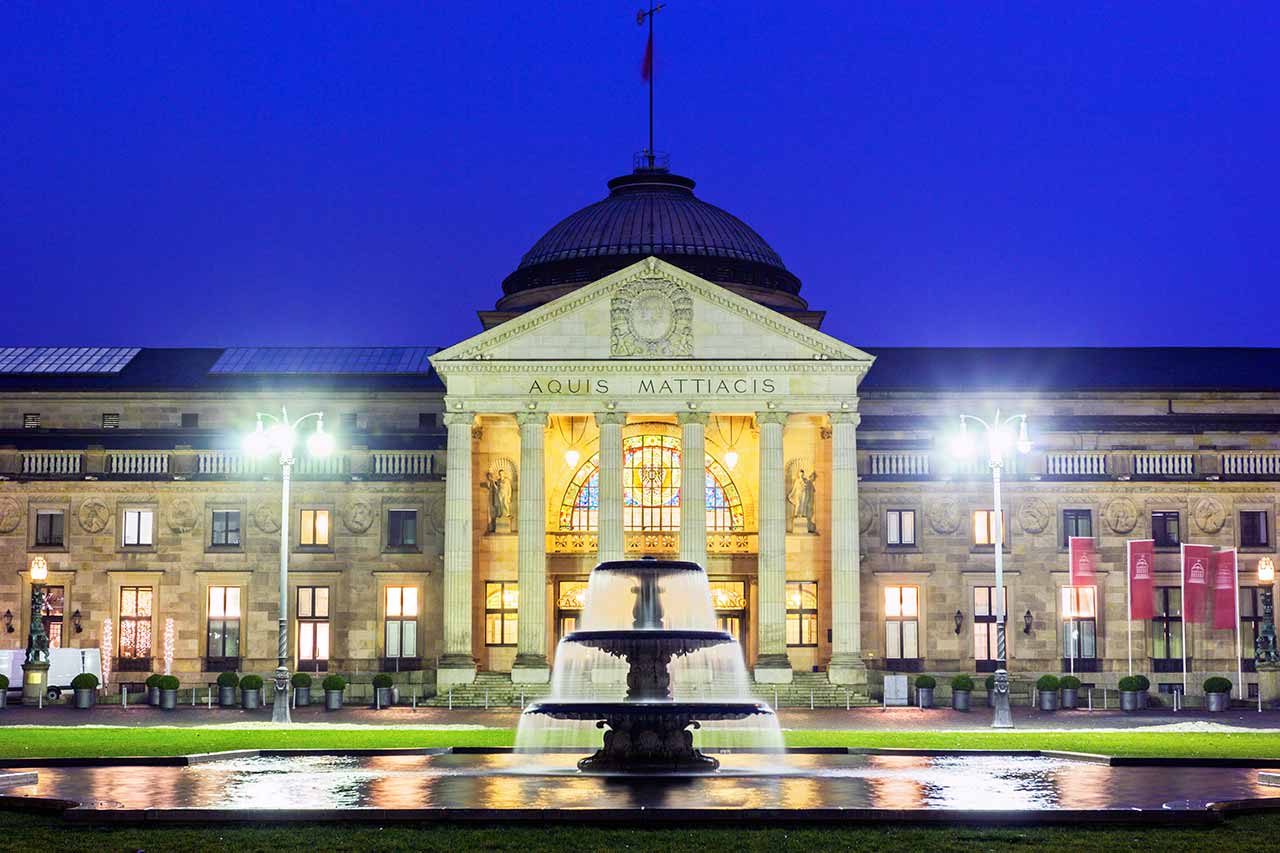
The program includes:
- Initial presentation in the clinic
- clinical history taking
- review of medical records
- physical examination
- laboratory tests:
- complete blood count
- general urine analysis
- biochemical blood test
- inflammation markers (CRP, ESR)
- blood coagulation analysis (aPTT, PT, INR)
- immunological diagnostic
- vitamin B12
- folic acid
- blood smear
- abdominal ultrasound
- aspiration biopsy of bone marrow
(trepanobiopsy of iliac wing) - differential diagnosis with other blood diseases
with impaired immunopoiesis - nursing services
- full hospital accommodation
- transfusion therapy
- conservative treatment
- symptomatic treatment
- explanation of individual treatment plan
Required documents
- Medical records
- Complete blood count (if available)
Service
You may also book:
 BookingHealth Price from:
BookingHealth Price from:
About the department
The Department of Bone Marrow Transplantation at the DKD HELIOS Clinic Wiesbaden specializes in autologous and allogeneic bone marrow transplantation according to the modern standards of European medicine. The preparation and follow-up care of patients after the therapeutic procedure are also within the competence of the medical facility. In most cases, bone marrow transplantation is performed in patients with severe forms of anemia, leukemia, lymphomas, multiple myeloma, immunodeficiency disorders, some solid malignant tumors and other pathologies. The department's doctors work closely with specialists from the Department of Hematology and Oncology. Prior to bone marrow transplantation, the specialists carry out comprehensive diagnostics and assess both benefits and risks of using this therapeutic technique. Particular attention is also paid to high-quality patient care after transplantation in order to prevent the development of complications, including graft versus host disease (GVHD). The department is headed by Dr. med. Arne Brecht.
Prior to either autologous or allogeneic bone marrow transplantation, the patient undergoes a complex of diagnostic examinations to assess his overall health condition and exclude the presence of contraindications to the therapeutic procedure (serious infectious diseases, resistance to chemotherapy, kidney and liver failure, progressive heart and respiratory failure may be contraindications). The first stage of the diagnostics is the study of the patient's medical history and a clinical examination. The doctors then conduct a biochemical test, PET-CT scanning to detect metastases, bone marrow aspiration biopsy or trepanobiopsy followed by laboratory tests and other procedures. If all clinical indicators are satisfactory, the patient will undergo bone marrow transplantation.
Autologous bone marrow transplantation involves the use of the patient's own stem cells. The collection of autologous stem cells takes place prior to high-dose chemotherapy, which is an obligatory part of the therapeutic process for this type of transplantation. The resulting cells are frozen until the procedure is performed. After the completion of the course of chemotherapy, the patient's stem cells are injected into his body intravenously. A healthy bone marrow will be formed in the human body within several weeks. This bone marrow will properly perform hematopoietic and other functions. The essence of allogeneic transplantation is almost the same. The only difference is that allogeneic bone marrow transplantation involves the use of donor stem cells. When performing this type of transplantation, the main task is to select the most compatible donor in order to prevent the development of the graft versus host disease – the rejection of the transplanted donor material. Like autologous transplantation, allogeneic one is performed in a sterile isolation ward, which reduces the risk of infectious complications. The duration of the procedure is 1-2 hours. The patient follow-up and the intake of immunosuppressive drugs to prevent the development of graft versus host disease play a key role in the success of any type of transplantation.
The department performs bone marrow transplantation for the following indications:
- Malignant blood diseases (for example, leukemia, multiple myeloma, lymphomas)
- Severe forms of anemia accompanied by impaired formation of red blood cells
- Severe forms of immunodeficiency and weak immunity after severe infections, chemotherapy, radiation therapy, etc.
- Severe bleeding disorders
- Benign abnormalities in platelet formation
- Malignant solid tumors of various localization
- Autoimmune diseases combined with weak immunity due to the prolonged use of immunosuppressive drugs
- Other diseases and pathological conditions
The department's key clinical focuses include:
- Preparation for bone marrow transplantation
- Autologous bone marrow transplantation
- Allogeneic bone marrow transplantation
- Follow-up care after bone marrow transplantation, including treatment for graft versus host disease (GVHD)
- Maintenance therapeutic procedures after allogeneic bone marrow transplantation: blood transfusion, systemic and intrathecal therapy
- Other medical services
Photo of the doctor: (c) DKD Helios Klinik Wiesbaden
About hospital
The DKD HELIOS Clinic Wiesbaden has long made a name for itself in the international medical arena by introducing an optimal model of medical care, combining the use of the most advanced medical technologies, the experience of highly qualified doctors and impeccable quality of patient care. The medical facility first opened its doors to patients in 1970. The world famous Mayo Clinic Rochester in America served as a model for the design of the medical complex. Since the foundation of the clinic, the main direction of its activities has been comprehensive diagnostics of complex diseases integrated into an interdisciplinary treatment concept. Today, an integral part of clinical practice is also preventive diagnostics aimed at the early detection of pathological changes in the human body. In recent years, the clinic has been actively developing the direction of surgery, in which it has significantly succeeded. The clinic enjoys a reputation as one of the best medical facilities in Europe in the field of endocrine and colorectal surgery, as well as in hernia repair surgery.
The clinic has 24 specialized departments. Each of them offers a team of experienced doctors, whose main value is the patient's health. The work of all doctors of the medical facility is based on a single credo – "Treat not a disease, but a patient". According to this belief, the course of treatment should be as individual as possible, taking into account the patient's physical characteristics, lifestyle, diet, emotional state, etc.
The clinic's bed capacity consists of 138 inpatient beds and 60 beds in a day hospital. Many diagnostic and therapeutic procedures are performed on an outpatient basis. The diagnostic and treatment rooms, like the operating rooms of the clinic, are equipped with state-of-the-art technology to ensure the observance of strict hygiene and safety standards. The advanced medical equipment allows detecting the slightest changes in the functioning of organs and their structure with impeccable accuracy, thanks to which doctors can diagnose complex pathologies at the very early stages. This greatly increases the chances of a successful cure.
The location of the clinic in Wiesbaden, known as one of the oldest thermal spas in Europe, is another pleasant advantage for the patients. Arriving at the clinic for a preventive diagnostic examination, one can improve his health in the healing thermal springs, as well as enjoy the sightseeing of historical monuments. The medical center is located in the immediate vicinity of the English style Spa Park founded in the distant 1852, so in the free time from medical procedures one can take a pleasant walk in the beautiful park.
Photo: (с) depositphotos
Accommodation in hospital
Patients rooms
The patients of the DKD HELIOS Clinic Wiesbaden live in comfortable single and double rooms. Each patient room has an ensuite bathroom with shower and toilet. The standard patient room furnishings include an automatically adjustable bed, a bedside table, a table and chairs, a TV and a telephone.
The clinic also offers enhanced comfort rooms with spacious bathrooms, which additionally include a large mirror, hairdryer, changeable towels and toiletries. These patient rooms also have a safe for storing valuables, a free minibar with soft drinks, a flat-screen TV with satellite channels and free Wi-Fi.
Meals and Menus
The patients of the clinic are offered tasty and balanced three meals a day: breakfast, lunch and dinner. If for some reason you do not eat all the foods, you will be offered an individual menu. Please inform the medical staff about your dietary preferences prior to treatment.
The clinic also has a cozy cafe where one can taste delicious snacks, salads, main courses and desserts. One can also enjoy aromatic coffee, delicious tea and soft drinks in the cafe.
Further details
Standard rooms include:
Religion
The religious services are available upon request.
Accompanying person
During the inpatient program, the accompanying person can live with the patient in a patient room or a hotel of his choice. Our managers will help you choose the most suitable option.
Hotel
During the outpatient program, the patient can stay at the hotel of his choice. Our managers will help you choose the most suitable option.





